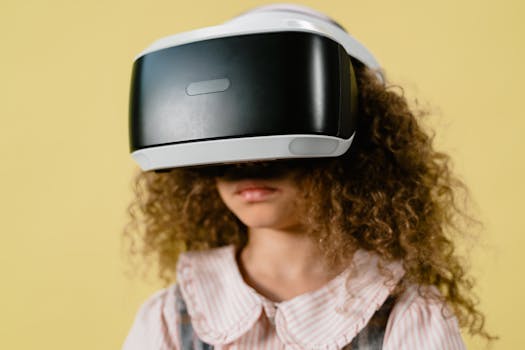
“`html
Introduction
The Future of Education: What 2025 Holds is a topic that resonates with educators, students, and parents alike. As we approach the mid-2020s, the educational landscape is rapidly evolving. In this article, we will explore the key trends and predictions that will shape education by 2025.
Section 1: Technology Integration
One of the most significant changes in education is the integration of technology. By 2025, we can expect to see a more widespread use of virtual reality (VR) and augmented reality (AR) in classrooms. These technologies will allow students to experience immersive learning environments, making complex subjects more accessible.
Furthermore, artificial intelligence (AI) will play a crucial role in personalized learning. AI-driven platforms will analyze student performance and adapt lessons to meet individual needs, ensuring that no student is left behind.
Section 2: The Rise of Online Learning
The COVID-19 pandemic accelerated the shift towards online learning, and this trend is expected to continue. By 2025, a significant portion of education will take place online, offering students flexibility and access to a broader range of resources.
Online learning platforms will evolve, providing more interactive and engaging experiences. Gamification will become a key element, making learning fun and motivating for students.
Section 3: Emphasis on Social-Emotional Learning
As we move forward, the importance of social-emotional learning (SEL) will be more recognized. Educators will be trained to incorporate SEL into their curriculums, helping students develop crucial life skills such as empathy, resilience, and teamwork.
By 2025, schools will prioritize the mental health and well-being of students, creating supportive environments that foster personal growth alongside academic achievement.
Section 4: The Evolving Role of Educators
With the rise of technology and online learning, the role of educators will also change. Teachers will become facilitators of learning rather than mere providers of information. They will guide students in navigating digital resources and developing critical thinking skills.
Professional development will focus on equipping educators with the skills needed to thrive in this new landscape, ensuring they can effectively support their students.
Conclusion
The Future of Education: What 2025 Holds is an exciting prospect filled with opportunities for innovation and growth. As technology continues to evolve and our understanding of effective teaching methods deepens, the educational experiences of students will become more personalized, engaging, and supportive. Embracing these changes will be essential for educators, students, and parents alike as we move towards a brighter future for education.
“`





